LPU is actively promoting conscious water usage beyond its campus to inspire the wider community, including local residents, businesses, and organizations, to embrace water conservation. By implementing effective water management practices, campus serves as a model for responsible water use. The university has installed low-flow faucets and toilets, energy-efficient water heaters, and uses recycled treated water for agricultural purposes, significantly reducing water consumption. These actions showcase replicable practices that the surrounding community can adopt. University dedication to environmental preservation includes hosting seminars that raise awareness about efficient water usage and the importance of conservation in response to the growing water crisis. These seminars engage students, employees, and the general public, underscoring water-saving behaviors that extend into daily life. Further encourages water-conscious habits through initiatives such as xeriscaping, improved irrigation practices, and actively discouraging water wastage. By reaching out to those beyond the campus,University highlights the importance of individual contributions to water conservation, setting a standard for sustainable development and ecological responsibility in the community.
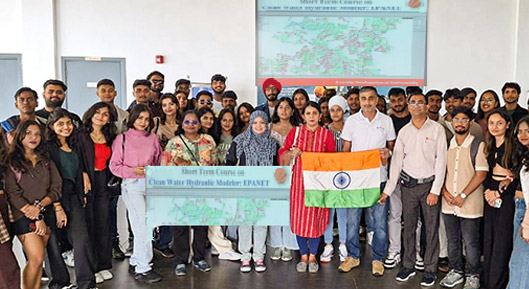
Empowering Water Management Skills
As part of its community outreach, LPU organized a water usage campaign led by expert faculty, focused on "Enhancing Skills in Water Demand and Supply Management" for participants from external organizations. Participants gained essential skills in designing water networks, simulating water demand and supply, evaluating uncertainties, and analyzing water supply sustainability.
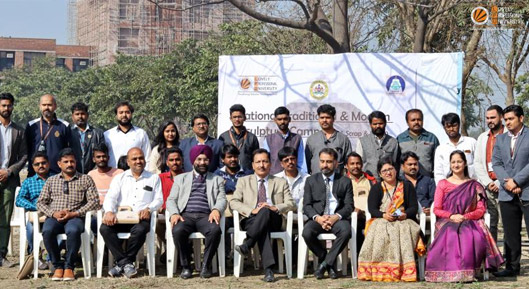
Mastering Water Management Techniques
As part of an open and collaborative campus outreach initiative, LPU hosted the "Water Utility Management Workshop" through HRDC, engaging external participants in advanced training. This hands-on workshop included practical exercises in water supply networks and hydraulics, data integration, and output analysis.

Promoting Waterless Innovation
LPU students recently launched the "Go Clean & Safe" initiative, taking to the streets to showcase their innovative water-less car wash concept. This outreach effort aimed to raise public awareness about water conservation by demonstrating sustainable practices in everyday life. Through community engagement and interactive demonstrations, the students highlighted the importance of reducing water usage and adopting eco-friendly alternatives.
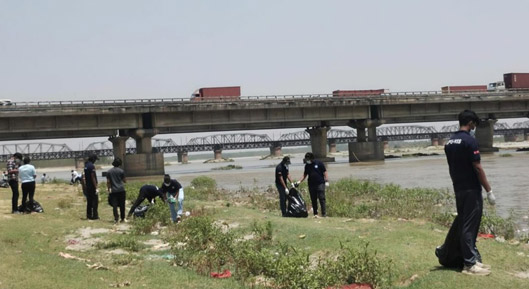
Sutlej River Revitalization
In collaboration with NCC and community participants, LPU students led a clean-up initiative along the Sutlej River, one of Punjab's major water sources. This outreach activity brought together collective efforts to remove waste from the riverbed, raising awareness within the community about the importance of preserving natural water resources.
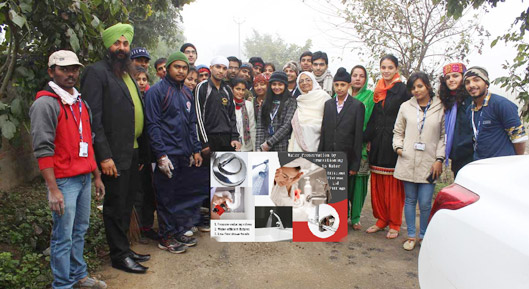
Water Preservation by transitioning to Water-Efficient Fixtures and Fittings
LPU students organized an outreach awareness program to promote conscious water usage by encouraging the adoption of water-saving alternatives in residential and public spaces. The initiative focused on replacing traditional fixtures with push-button taps on water coolers, low-flow faucets, shower-heads, and dual-flush toilets, alongside promoting practices like taking bucket baths, avoiding running taps, and using water-conserving laundry facilities. They also raised awareness about installing automatic sensor-based urinals, semi-automatic push-button taps, and water-saving spray jet nozzles.
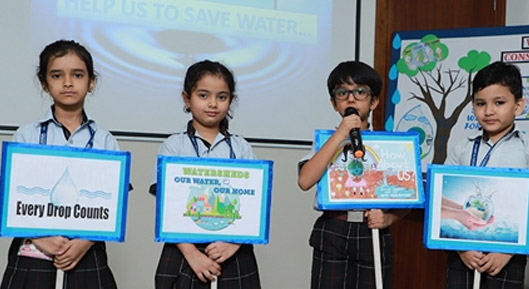
Water Conservation and Gardening Workshop for School Children
To promote conscious water usage in the wider community, LPU has partnered with local corporations, water distribution companies, schools, non-profits, and local authorities to implement water-saving measures. Together, they organize activities, events, and educational sessions to teach practical methods for conserving water and reducing waste. Through these collaborations, LPU fosters a shared commitment to water conservation, empowering community members to make responsible water choices and supporting sustainable practices across the region.
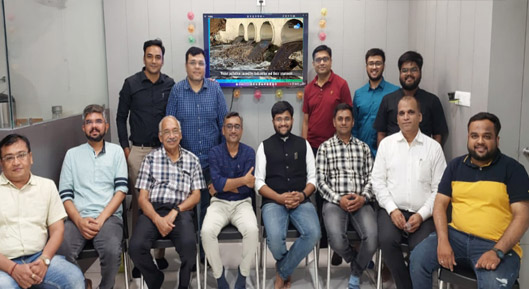
Industrial Pollution Awareness and Prevention Seminar
Faculty and students of LPU also contribute to solving water issues in communities, seeking for solutions that are faced by the population of the locality using water sources. This research is beneficial to industries and municipalities as well as the environment organizations within the region. Additionally, demonstration systems such as rainwater recycling and collection system illustrations act as healthy concepts that local people and business can practice in their structures.



